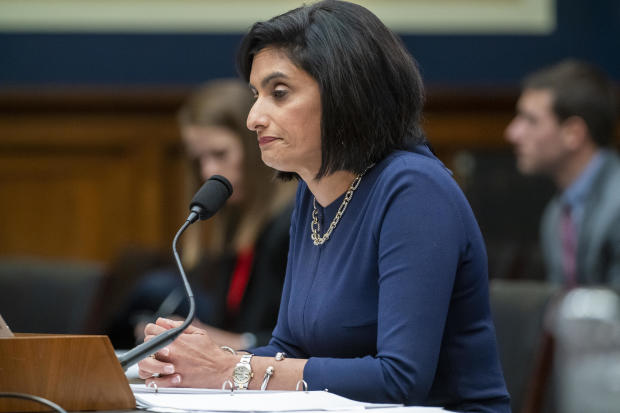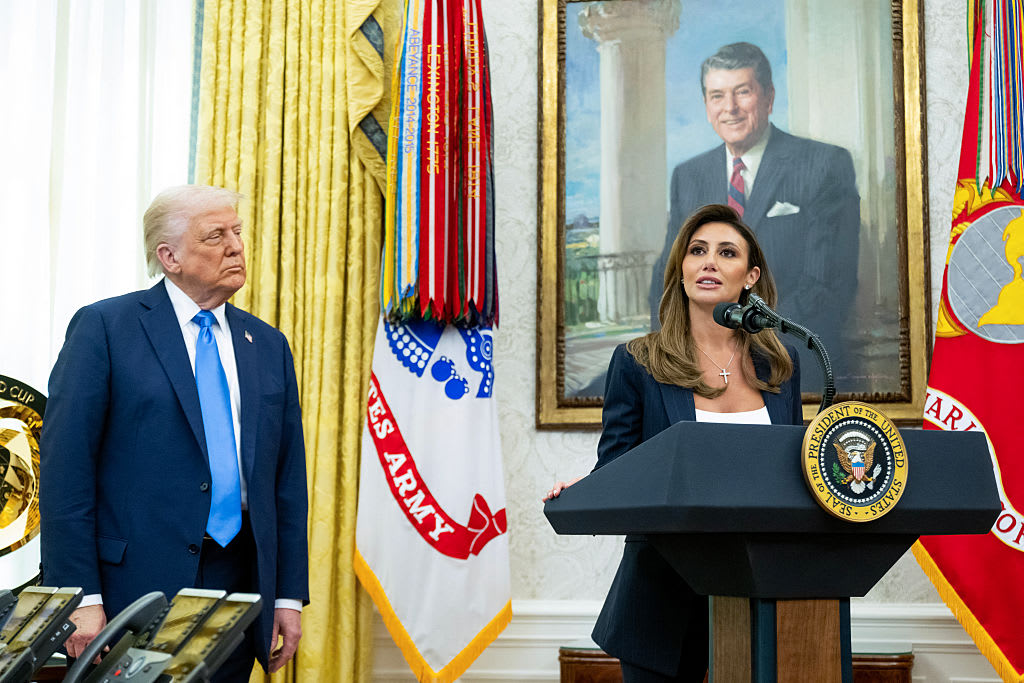Trump official dodges questions on Obamacare at tense oversight hearing
Washington — In her first appearance before a Democratic-led House committee, Seema Verma, the head of the agency that oversees the implementation of the Affordable Care Act, spent hours dodging questions about the current and future state of the U.S. health care system.
Lawmakers grilled Verma, the administrator of the Centers for Medicare and Medicaid Services, on the future of Obamacare, the landmark 2010 law whose fate remains uncertain. Although the executive branch typically defends federal laws in court, the Trump administration earlier this year joined a lawsuit brought by Republican state attorneys general that seeks to strike down the law.
The title of Wednesday's hearing before the oversight subcommittee of the House Energy and Commerce Committee set a tense tone. It was called "Sabotage: The Trump Administration's Attack on Health Care."
The ACA pushed the number of Americans with health coverage to historic highs. But since President Trump took office, his administration and Republicans in Congress have made a series of changes that undermine the law, such as repealing the individual mandate that required people to have health insurance, limiting the amount of time people who have to sign up for health care, drastically cutting the budget for Obamacare outreach and allowing states to enact work requirements as a condition of Medicaid eligibility.
As a result, the number of uninsured Americans rose in 2018, the first increase in 10 years. An additional 1.9 million people, including nearly half a million children, became uninsured last year, according to a Census Bureau report in September.
At Wednesday's hearing, Verma refused to answer how many people would lose insurance if the ACA is struck down. Representative Diana DeGette, the subcommittee's Democratic chairwoman, placed the number at 21 million.
DeGette also asked Verma if the Trump administration has a contingency plan to protect people with preexisting conditions, considering Obamacare required insurers to cover them. Verma refused to answer, telling DeGette she was "not going to get into any specifics of the plan."
Degette was just one of many members to press or criticize Verma about the existence of a contingency plan.
"To make matters worse, you have no plan, you can't produce a document, you can't give us a detail, you're skirting the issues and all we are getting are talking points," said Democratic Representative Raul Ruiz of California.
Verma's repeated refusal to answer yes-or-no questions visibly frustrated Democrats, who frequently cut her off.
Verma deflected questions with off-topic responses in which she stressed the cost-savings the Trump administration has achieved, the "flexibility" it has given health care providers and consumers, and the lack of affordability in premiums. At one point, she argued that people don't really have protections for preexisting conditions because they can't afford to buy health insurance in the first place.
Her comments follow reports that Obamacare premiums are expected to drop next year, for the second year in a row.
On the issue of work requirements, Representative Joe Kennedy got into a heated exchange with Verma. The Democrat from Massachusetts pointed to a study that shows work requirements — which the Trump administration approved in more states after courts ruled the policy unconstitutional in several states — have led to higher numbers of uninsured without boosting employment.
After Verma said "it's premature to draw conclusions" about work requirements, Kennedy noted that roughly 18,000 people lost health coverage in both Arkansas and New Hampshire, two of the states where the policy was enacted. "How many more people have to lose their health care before you can make a determination?" asked Kennedy.
Meanwhile, conservative House Republicans introduced a bill on Tuesday that includes elements of failed attempts to repeal Obamacare in 2017. That fall, voters in several red states approved ballot measures to make more low-income people eligible for insurance through Medicaid — a major provision of Obamacare. With Democrats in control of the House, the bill isn't expected to go anywhere.






